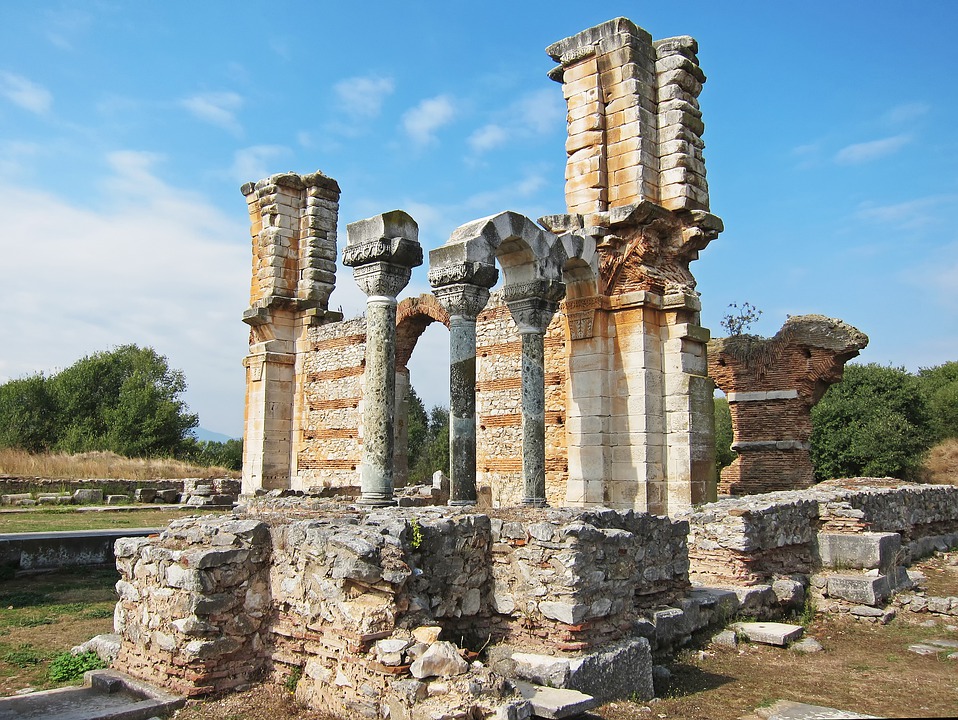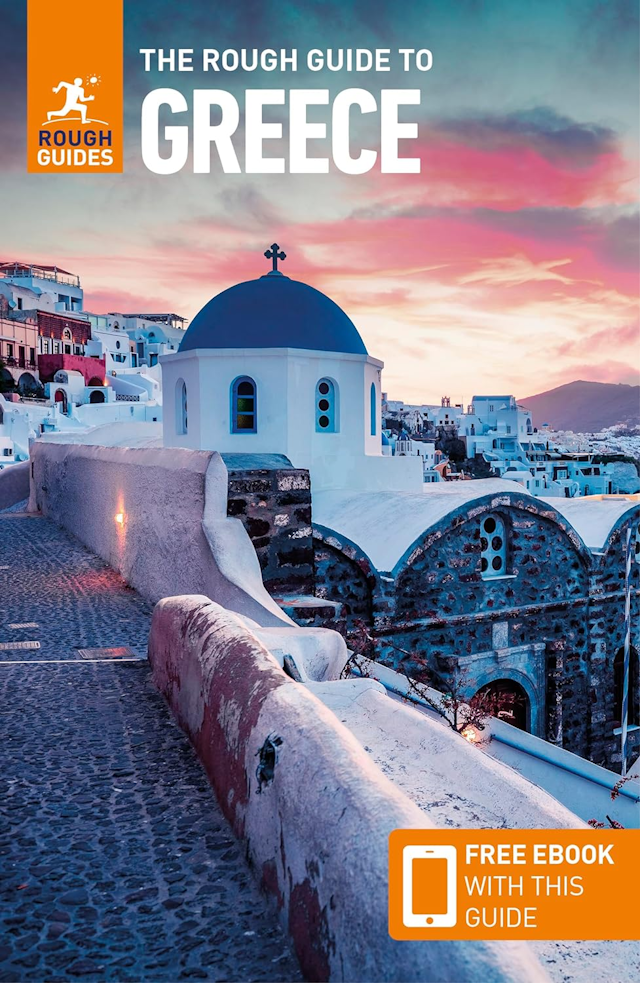- HOME
- Macedonia & Thrace
- Philippi
Philippi
Philippi is an ancient archaeological site near Kavala in East Macedonia and Thrace and is famous for being the place where the apostle St Paul was imprisoned.
The ancient site of Phílippi (or Filippoi) is 18km (11 miles) northwest of Kavála and was once a thriving town. Its impressive remains today straddle the main Kavála-Drama road. The site was named after King Philip II of Macedonia, the father of Alexander the Great, after he captured it from the Thracians in 356 BBC. The remains that are visible now date mostly from the Roman period, though.
St Paul in Prison
The most famous part of the site is the remnants of the prison in which St Paul was allegedly kept when he arrived here on his first visit to Europe to preach the Gospels of Christ in 49AD. It's thought that Philippi was the first place that the apostle preached on European soil. In spite of this unfriendly welcome, he remained here for a time and established a congregation, and returned here two more times, in 56 and 57AD.
Prior to the arrival of St Paul, the town was most notable for the Battle of Phílippi, which took place in 42 BC. The murderers of Julius Caesar, Brutus, and Cassius, had fled with their armies but were confronted here by the pursuing forces of Mark Antony and Octavian. When it was clear that they were going to be heavily defeated, Brutus and Cassius both killed themselves.
Philippi Theatre
There is a sizeable theatre on the site, which dates back to the time of Philip II but was rebuilt during the Roman era for use as an amphitheatre. On this side of the road – which was part of the Via Egnatia linking Rome with Istanbul and which passes through Thessaloniki – is also the site museum, although if time is limited it can be safely skipped as the main attractions are actually still in situ.
Philippi Roman Baths
On the opposite side of the road are the bulk of the town’s remains, including two rather contrasting features. One is the foundations of a church known as Basilica B, which is impressive in its scale, and the other is the remains of the public latrine, equally impressive for the state of preservation of its fifty marble seats. To complete the ablutions, the remains of the Roman Baths are nearby, which were built in 250AD but destroyed soon afterwards in a fire.
More Information
Visit the official Greek website for Philippi.
Latest Posts
-
The Lesser-Known Traditions of Greek Easter
Step off the beaten path this spring and discover the enchanting — and often surprising — Easter traditions found across Greece. -
Easter in the Mystical Castle of Monemvasia
In the castle town of Monemvasia, with its dramatic medieval backdrop and sea views, Easter is a deeply spiritual and atmospheric experience. -
Sifnos: Greece’s Hidden Culinary Star on the Rise
Sifnos, a Cycladic island, is gaining fame for its rich culinary heritage, especially the beloved melopita honey-cheese tart. -
Easter in Leonidio: A Tapestry of Light, Culture and Cliffs
In Leonidio, Easter comes alive with handmade hot air balloons in the sky and lanterns made from bitter oranges in the streets. -
April 9 Strike in Greece to Impact Public Transport, Ferries and Air Travel
Transportation and travel across Greece will face disruptions on Wednesday, April 9, as public transport, ferry and aviation workers join a nationwide strike called by Greek labor unions. -
Ancient Theater of Lefkada Brought Fully to Light Following Systematic Excavation
The Greek Culture Ministry has announced that the first ancient theater ever identified in the Ionian Islands has recently been brought fully to light on Lefkada, revealing an impressive monument that… -
Seven Greek Traditions Recognized as Intangible Cultural Heritage
From traditional barrel-making to age-old folk dances, seven new entries on Greece’s National Inventory preserve the country’s living heritage for future generations. -
Greek Air Traffic Controllers to Hold 24-hour Strike, Disrupting Flights on April 9
The Hellenic Air Traffic Controllers Union have announced a 24-hour strike for Wednesday, April 9, in response to the protest called by the Civil Servants’ Confederation (ADEDY). The strike is being h… -
Ten Best Budget Hotels on Santorini
Greece Travel Secrets picks the ten best budget hotels on Santorini, some with caldera views, some near beaches and some close to the heart of Fira. -
No Ferries in Greece on April 9 as Seamen Join Nationwide Strike
The Pan-Hellenic Seamen’s Federation (PNO) has announced its participation in the 24-hour strike called by the General Confederation of Greek Labor (GSEE) on Wednesday, April 9. The strike, which will…




























